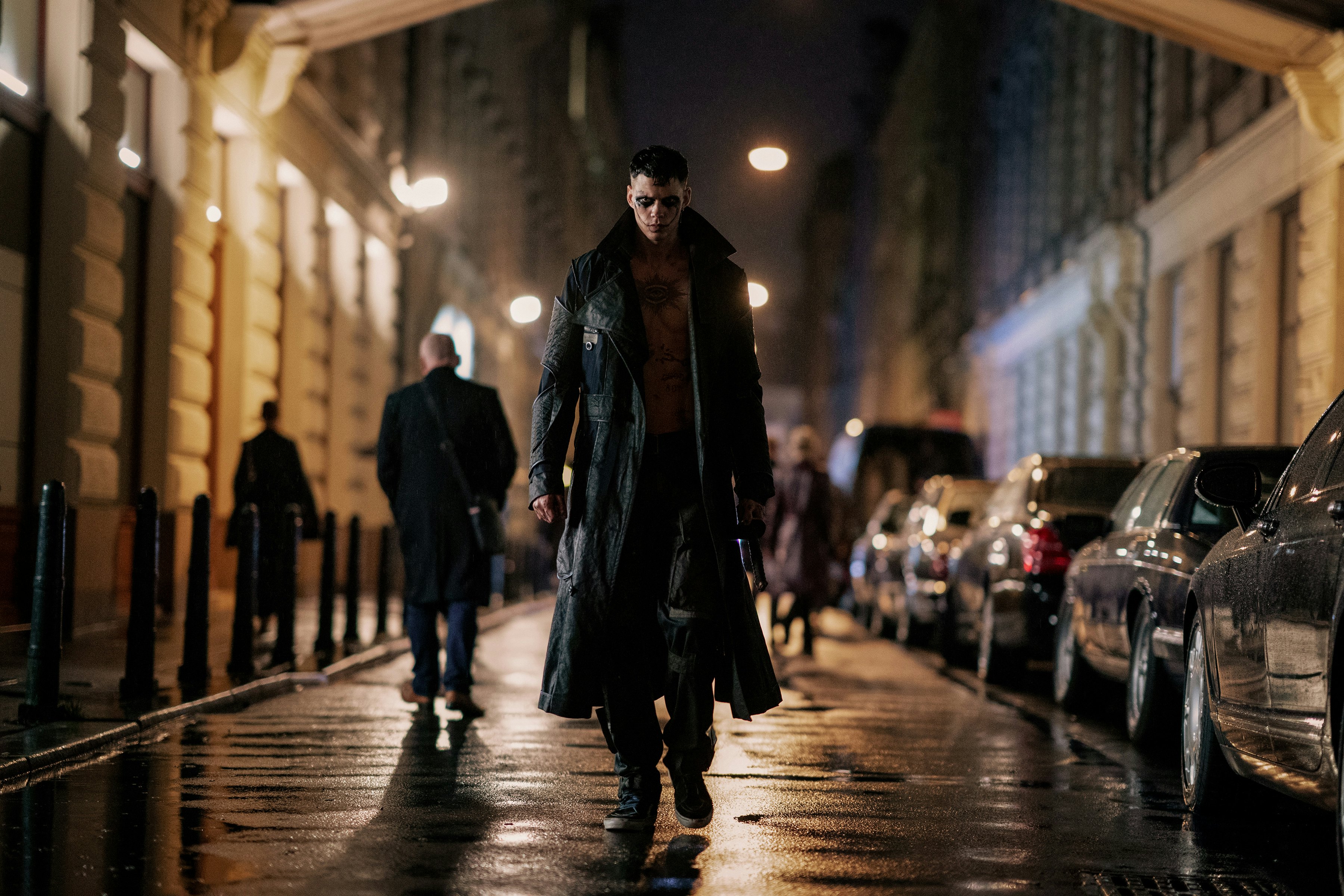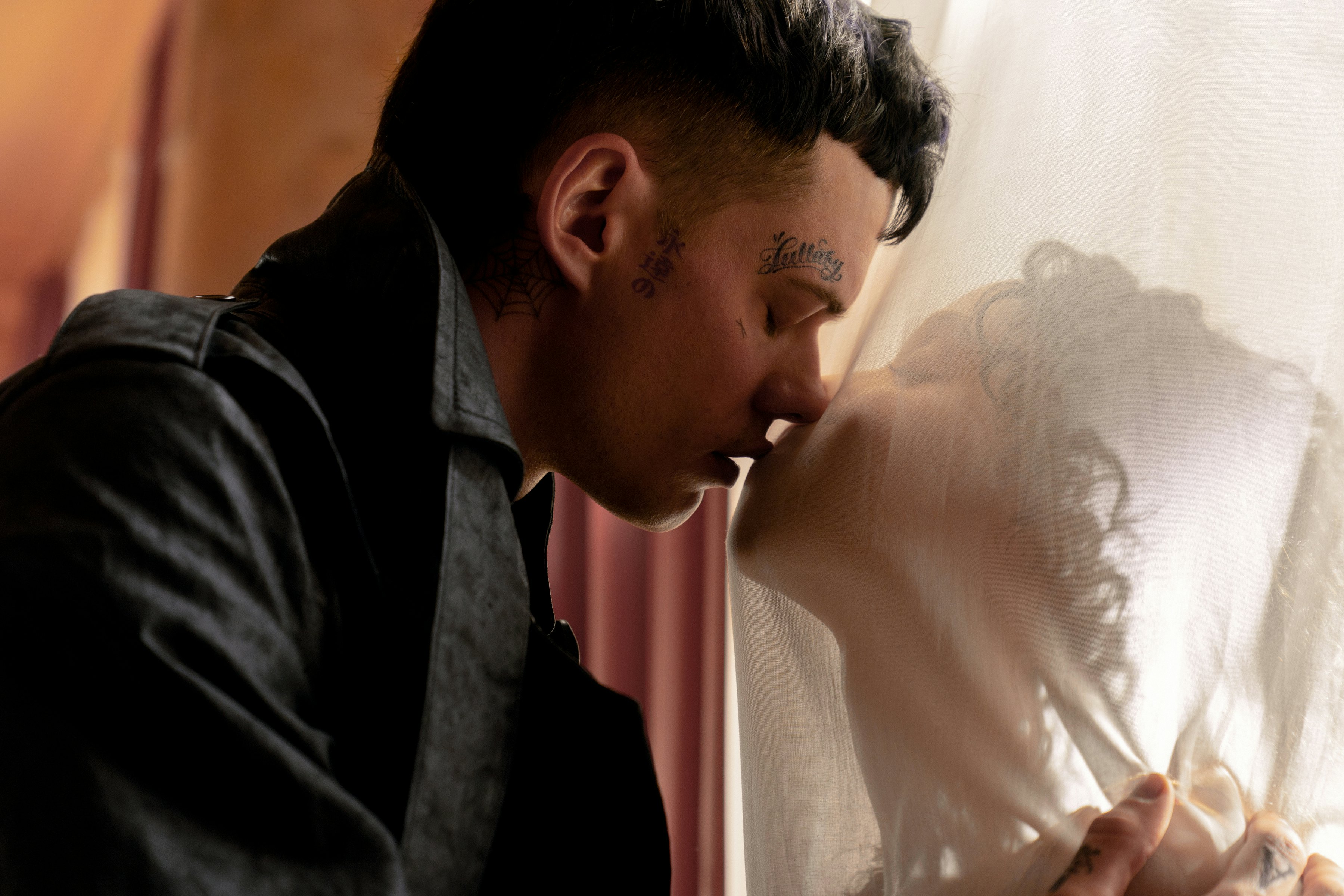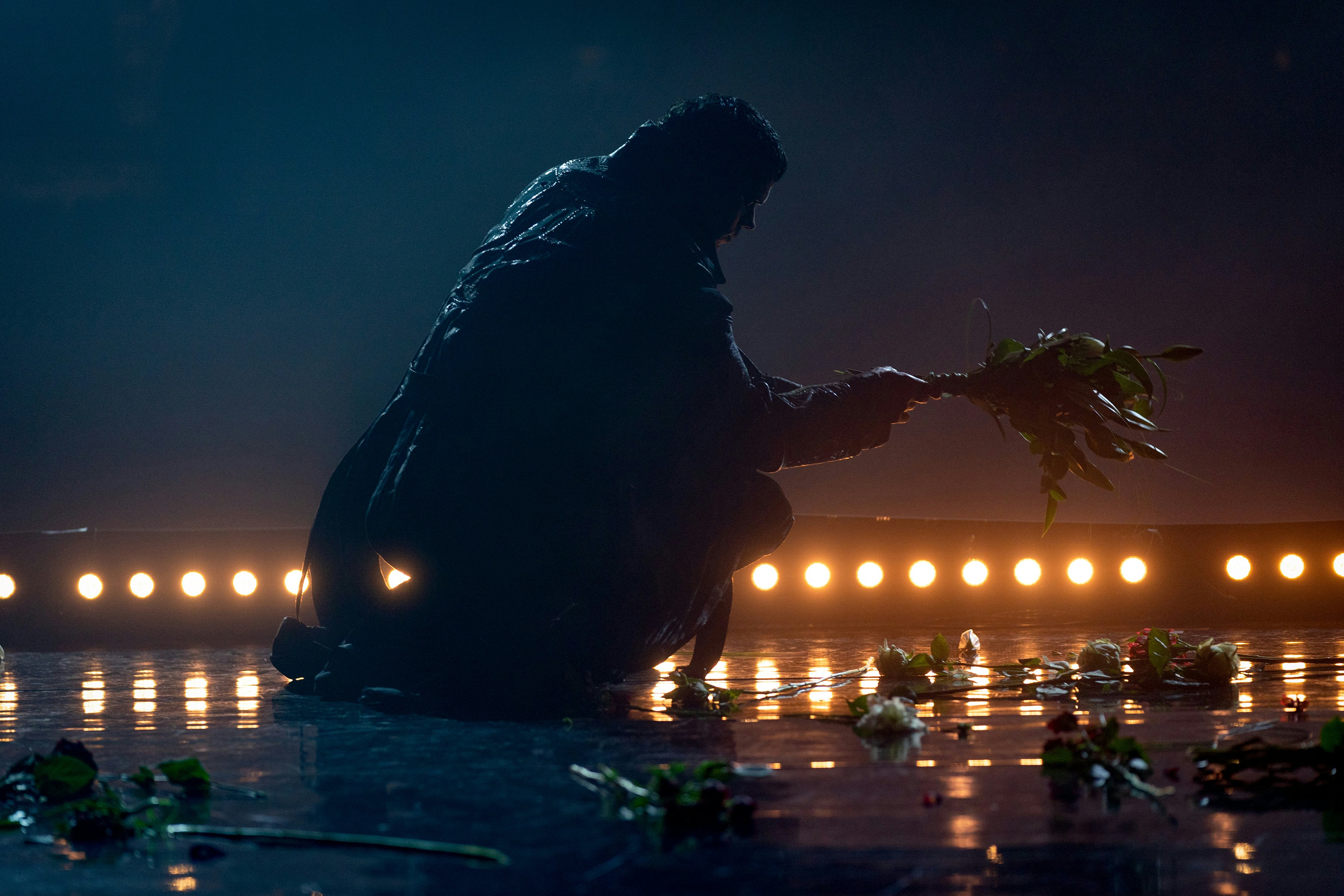
Rupert Sanders, for better or worse, is kind of a master of empty allure. The director’s films are frequently gorgeous to look at, drawing your eye whether you really want to look or not. Whether they actually have anything to say beyond lush set design and sleek cinematography is another story, but the results aren’t always in his favor.
A gracious reading of Sanders’ oeuvre will draw out the Faustian themes within. From Snow White and the Huntsman to the much-maligned Ghost in the Shell, the director is quietly obsessed with deals with the devil, the value of a human soul, and the burden of purity. His gothic reimagining of The Crow is no different, and that instinct does soften James O’Barr’s original tale of vengeance where it needs it the most.
If a new version of this story must exist, there are certainly worse ways to go out. In Sanders’ hands, The Crow is more romantic myth than superhero origin story. That doesn’t totally justify this film’s existence, especially as it comes exactly 30 years after the original film adaptation, which starred Brandon Lee. The late actor’s legacy looms over most attempts to revive this particular IP, and there’s a sense that no thematic change — be it the casting of resident weirdo Bill Skarsgård, or the use of an appropriately-moody soundtrack — can bring the Crow back to life.
The new Crow follows the basic beats of O’Barr’s graphic novel, but it also spends a lot more time on the circumstances that drive Eric Draven (Skarsgård) to become the titular anti-hero. We first meet Eric in a plush rehab facility, wiling away his days in silence and resignation. He brings a sort of macabre vibe to the function that his fellow inmates can’t abide, and Skarsgård’s inherent eccentricity is doing a lot of the heavy lifting here.
We’re meant to understand that Eric has a Dark Past — that, or an obsession with mortality that took hold at an early age. A sole flashback to his childhood (in which he tries to save a white stallion from a fatal wound) and a smattering of off-beat tattoos are really the sole insight we get into his character. That is, until he meets Shelly (FKA Twigs), a fellow tortured artist that checks into rehab to run from the demons of her past.
Eric’s connection with Shelly can only be described as kismet. They both fall hard into the kind of romance that feels like a kind of salvation, at least on the surface. When offered the chance to escape the facility with Shelly, Eric doesn’t hesitate. The pair start a new life in the city, a nouveau metropolis that feels like Sanders’ take on Gotham. And for a while, everything’s peachy. But Shelly is still running from the past. The demons that haunt her aren’t just figurative. They all work for her former patron (played by a steely cool Danny Huston), and they’ll stop at nothing to drag her back into the depths of her old life.

Huston’s mysterious villain, Vincent Roeg, is one of many interesting new ideas in The Crow. He’s introduced as an evil foil to the figure that Eric will become: a high society type who made a deal with the devil in order to live forever. There’s a catch, of course, as he has to sacrifice the souls of innocents to keep himself out of Hell. Frustratingly, we never learn how or why Roeg struck this deal in the first place. All that matters is the threat he poses to Shelly, who — thanks to video evidence hidden on her phone — is the only one who can expose his crimes and end his fun forever. That makes Shelly the next innocent on his hit list, and Eric another casualty in the crossfire.
Except Eric doesn’t pass away — not right away. Though Shelly’s soul is damned, Eric’s finds its way into purgatory, where he learns of a way to save his true love. If he manages to slaughter Roeg and his cronies, Shelly could come back from the dead. His love for her just needs to remain pure, otherwise, he’ll have to take her place. If this feels like a lot of red tape, that’s because it is: The Crow is almost jumping through hoops to place its simple love story within a larger supernatural world. Separately, both work just fine... but as Skarsgård’s romantic hero becomes a vessel for vengeance, the cracks between these worlds really start to show.

It’s almost ironic how such a soulful concept can be damned by a lack of material. Co-writers Zach Baylin and William Schneider want to show how one can break every rule to prove your love for the right person. Again, that’s the generous reading — and Sanders’ own aesthetic instincts do occasionally elevate a scant script. The transition from bohemian dream to gothic nightmare is expertly done, as is the gnarly action sequence we get with Skarsgård in full Crow regalia. But when you take away the imagery, the moody needledrops, and the murder of CGI crows (seriously, there are so many crows), there’s not much else to latch onto.
Unconditional love is a quaint concept, but it’s hard enough to believe that Eric and Shelly are living, breathing people, much less people that would go to Hell and back for one another. Skarsgård is just slightly wasted in the role; Twigs could be great, but there aren’t many opportunities to prove that. The same goes for the new ideas Sanders and co. introduce. The Crow wants to update the myth of Orpheus and Eurydice, but in a lot of ways it’s bound by the IP it’s adapting. What starts as a compelling love story ends up choked by a gory, gruesome tale of revenge: there are glimmers of brilliance here and there, but there’s not always room for the dark to mingle with the light.







